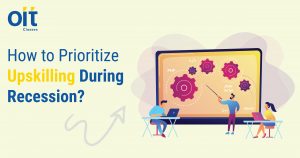
6 Tips & Tools for a Successful Online Learner

Students make the most of online classes. The amount of students enrolled in online courses has steadily increased to unprecedented levels. In 2017, about 6 million students enrolled in at least one online course to either advance their professions, change jobs, or achieve personal goals.
The surge in enrolment is not unexpected given that online degree programmes provide learners with several unique advantages, including a high level of responsiveness. Online courses allow you to study whenever and wherever you choose, but since they are tailored to your needs, they make it simpler to earn a degree while juggling job and family life. Furthermore, by taking an online course, you may have access to nationally recognized level degree programmes that would otherwise be unattainable or extremely time-consuming, without having to physically attend the class.
Self control and discipline with effective time management techniques may help students excel and carve out a comfortable niche in online programmes, but these abilities are best developed through practice.
Are Online Courses Simpler to Try taking?
It’s a wrong notion, that online degrees are easier than their on-campus counterparts. An online program is the same as a traditional classroom except for the place of instruction. Factor in additional distractions that online students encounter—such as children in the home while taking classes—and the workload can easily feel more challenging.
If you are not fully ready, online courses can be challenging. However, if you develop efficient online learning skills, you will conclude that the courses can be an excellent alternative to the traditional environments.
Here are the 6 tips and strategies for successful online learning to ensure that you derive the maximum benefit from your next online class.
Online Tips and Tactics for a Learning Success
- Maintain Order
Before semester begins, be certain that you possess the necessary technical knowledge to obtain the relevant class resources, like e-books, internet tools, and, yes, obviously, websites too. Spend some time practicing with the online platform so that you’re prepared to take your first class. This enables you to focus on your study rather than login into the lesson for 5 minutes. Furthermore, exactly as you’d do in a physical classroom, have the necessary resources available to make credible notes. It is beneficial to maintain a good record of your efforts all through the semester in preparation for the final test.
- Setting up the Workspace
Create a separate learning environment for studying. You’ll develop the habit of completing your work there regularly. Some students have the habit of listening to music while studying, while others require complete silence. You can experiment to see which type of environment increases your productivity. Regardless of whether your work environment is your dining table or a corner hall in a coffee shop, all you need is a good internet connection to access and work on your coursework.
When selecting a place to work, try to limit as many physical and online distractions as possible. When you’re at home, you should resist the temptation to turn on your television or finish your last laundry. You can use online apps such as Freedom and ColdTurkey which have fewer interruptions and block social media sites that can distract you during your lectures.
- Select a Learning Approach
Determine what time and how you would perform at your best after choosing where you would learn. If you are a morning person, spend some time studying first in the morning. Do you frequently stay up late? You can set out an hour or two after supper to unwind in front of the desktop. Make careful to schedule daytime classes within school hours if your youngster needs your supervision in the morning and/or evening. Get into the zone, grab your customary mug of coffee, put on your favorite music, and perform whatever is necessary to get in track of your business.
Learning is unique for each and every one of us. Therefore, check out the types of information that are most useful for understanding new concepts and applying relevant learning strategies. For example, if you are a visual learner, print and review the transcript of your video lecture. If you learn the concept through listening, you can take the time to schedule and play and review all audio-based and video-based course content.
- Set a Schedule
Without the need for an instructor to check in on a regular basis, you must rely on your organizational skills. Examine the syllabus before the first day of class and make a list of major assignments. Put them on a schedule that you verify on a regular basis so you know what hard work is coming up in the coming weeks. Keep in mind to account for scheduling issues that could intrude with your weekly study schedules, such as wedding ceremonies or weekend getaways, so that you have sufficient time to finish assigned tasks.
Make the online curriculum a regular part of your weekly routine. Take time each week to divide your workload into chunks by reading, watching presentations, writing dissertations, studying, and attending online forums. Next, set a reminder to complete the task. Treat these time blocks as seriously as you would in a face-to-face class, let others know that these time zones aren’t available, and use your assigned workspace consistently. Set a timer and allow yourself to move on to other tasks when the scheduled time is complete.
- Active Participation
Take proactive measures, read materials, communicate with classmates and teachers, and conduct additional research as needed. Constructive online learners prioritize gathering and applying feedback for improving their future schoolwork. Students who spend time interacting with teachers and classmates are more likely to succeed in their classes and studies.
- Keeping an Open Mind
Some online students feel more comfortable when sharing their thoughts and opinions than in the classroom. Online learning allows students to actively reflect and organize their thoughts before answering or commenting on questions. The student’s open-mindedness helps students to interact with the material, resulting in a more active and open community.
Conclusion:
A degree earned online is a terrific opportunity to stand out to prospective employers and progress your profession in a way that works for you. To become used to the intricacies of remote learning, though, might take some time. Use the six suggestions and techniques listed above to excel as an online student, hone your talents, and advance in your academic career.





